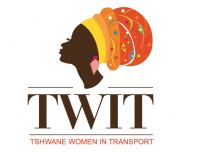HERE Technologies and Tshwane Women in Transport call for more participation in the transport industry

The Tshwane Women in Transport (TWIT) announced its partnership with HERE Technologies – leaders in digitised mapping and pioneers of in-car navigation systems since 1985 – by launching the digital mapping programme at the CSIR recently.
Addressing TWIT members at the launch, City of Tshwane Member of Mayoral Committee for Roads and Transport Councillor Lynn Senkubuge said by engaging women and men, together, towards gender equality ‘South Africans will make it happen’.

The Tshwane Women in Transport (TWIT) announced its partnership with HERE Technologies – leaders in digitised mapping and pioneers of in-car navigation systems since 1985 – by launching the digital mapping programme at the CSIR recently.
Addressing TWIT members at the launch, City of Tshwane Member of Mayoral Committee for Roads and Transport Councillor Lynn Senkubuge said by engaging women and men, together, towards gender equality ‘South Africans will make it happen’. “Today is an important milestone on that journey. Transport can make a big difference in increasing women’s productivity and promoting gender equality.”
The MMC also reminded her audience: “In addition to its major contribution to economic growth, transport plays a crucial role in special sustainable development by broadening access to health and education service, employment, improving the exchange of information, and promoting social cohesion.”
“As we launch this digital programme we should invade transport sector by ensuring that we cover every corner of this industry, let not only few of us fly planes, let us operate those cranes, operate the bullet trains our President envisages, let us build and drive them in our large numbers.
“The digital platform programme that we are launching today should not only enable to navigate the transport industry, but must also ensure it is developed by us,” she said.
Lesedi Mokoma, CSIR transport management design and systems research group leader, said the group sees an urgent need to reach out to society to accelerate the development of public transport through community-based skills transfer.
“It is on this basis that the group has partnered with the TWIT,” she said. “So far the CSIR and TWIT have been engaged in a research initiative that documents the level of access to opportunities for women in the transport space and we are beginning to correct this by facilitating networking between the organisation and main players in the transport industry as well as enabling skills transfer initiatives such as the one sponsored by HERE Technologies.”
Senior Business Analyst at Here Technologies, Lenah Kitenge, said one of her company’s business objectives is to build digital communities and partnerships. “This is the reason why Here Technologies has decided to partner with TWIT because we want people to help us keep our maps updated,” she said. “We want people to start mapping and updating the maps in rural and urban areas.”
She explained further: “Outdated maps impact negatively on, for instance, service delivery. Imagine somebody you know is having heart attack in your presence, you call the ambulance when the ambulance gets to an intersection, the driver does not know whether to go right, left or drive straight up. This is likely what would happen if maps are not updated in our surroundings.”
The digital mapping programme allows participants to edit and update information.
“At the heart of this programme lies the Geographical Information Systems (GIS),” she said. “And the core of transportation system is GIS so you can understand why this is important to us.”
Here Technologies will also impart GIS and coding skills on TWIT members.
Here Technologies would incentives participants.
GIS provides the hub technology for planning, deploying, operating, and optimizing transportation systems.
The GIS is used to measure the performance of Urban Transport Sustainability. The GIS models are explored to assist urban transport planner to measure sustainability in urban transport.
TWIT as an organisation and its members have emerged out of a very exciting government initiative of a decade ago when the South African Network of Woman in Transport organisation was founded by the Department of Transport.

